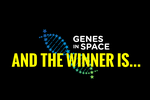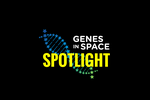Meet the 2015 Genes in Space Mentors
Come meet our 2015 Genes in Space mentors. Each mentor was paired with a Genes in Space finalist team and was instrumental in getting their teams ready for ISS R&D Conference in July 2015.
Martin Samuels
Assistant Director of Undergraduate Studies, CPB and MCB, Harvard University
GiS Mentor to: Jonathan Chang and Thiago Bandeira
I grew in suburban Maryland, and fostered my inner nerd through weekend visits to the Smithsonian and eventually internships at the NIH while in high school. I went to college at the University of Chicago to study biology and joined the Molecular and Cellular Biology (MCB) Department at Harvard as a graduate student. I earned my PhD by studying the structure and function of proteins involved in DNA replication and damage repair in David Jeruzalmi’s lab. After graduating, I served as a preceptor for several introductory- and foundation-level courses in MCB, and very recently I became the Assistant Director of Undergraduate Studies in MCB and CPB (Chemical and Physical Biology).
I was really drawn to the educational mission of Genes in Space: to engage students in the process of designing hypotheses and experiments. Genes in Space allows students to explore a tremendous amount of potential questions while focusing around one particular type of experiment (PCR) in one particular context (aboard the ISS), indicating the broad array of questions that can addressed by a single technique while emphasizing the rigor in experimental design required to ask a particular question.
Kutay Deniz Atabay
Graduate Student, Department of Brain and Cognitive Sciences, MIT, Whitehead Institute for Biomedical Research
GiS Mentor to: Alyssa Huff
I am currently studying the logic of regeneration in the nervous system. I am generally interested in neurodevelopment, neurogenetics and space life sciences.
Life Science experiments aboard the International Space Station provide unique insights into how biological systems function and respond to their environments. The knowledge we gain from these experiments apply to many different levels of complexity from bacterial gene expression regulation to systemic changes in the human nervous system. Genes in Space Team makes it possible for us to become a part of this wonderful journey that is advancing our horizons in so many ways. Genes in Space Team is also singular in the way that it introduces a new technology to space station while engaging students and teachers/mentors to ask and provide answers to actual space life science questions. Being a part of the team is a distinct privilege, allowing us to contribute, to inspire and to further mankind’s journey beyond the solar system.
Mina Kojima
Graduate Student, MIT, Whitehead Institute for Biomedical Research
GiS Mentor to: Tarun Srinivasan
I’m studying mammalian germ cell biology. Specifically, I’m studying how mammalian germ cells make the decision to initiate meiosis.
I was super excited about the opportunity to be able to mentor high school students, and the opportunity to think about how science might be done differently in space.
Minh Vong
Graduate Student, Department of Molecular Cellular Biology, Harvard University
GiS Mentor to: Jaclyn Shuttleworth, Jon Hamilton, and Sarah Golden
I study the replication cycle of the Trichomonas vaginalis virus, specifically interested in how regions of the genome contribute to different stages of the replication cycle. Outside of science, I really enjoy volleyball; and I probably play way too much volleyball.
I really enjoy research, science, mentoring, and teaching. I think it’s very important to try to reach out to young people who are interested in science and help guide them along this interest. Being a mentor for GiS was a great opportunity to continue doing what I want while helping young people who are interested in science.
Holly Christensen
Graduate Student, MIT, Whitehead Institute for Biomedical Research
GiS Mentor to: Anna-Sophia Boguraev
I study histone modifications in mammalian germ cells. I’m interested in epigenetics, transcriptional regulation, and development.
I was excited about the opportunity to mentor high school student(s), and to think about the challenges associated with doing experiments in extreme environments.


